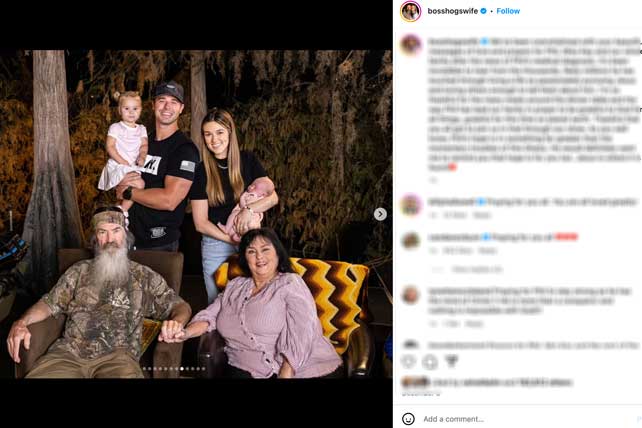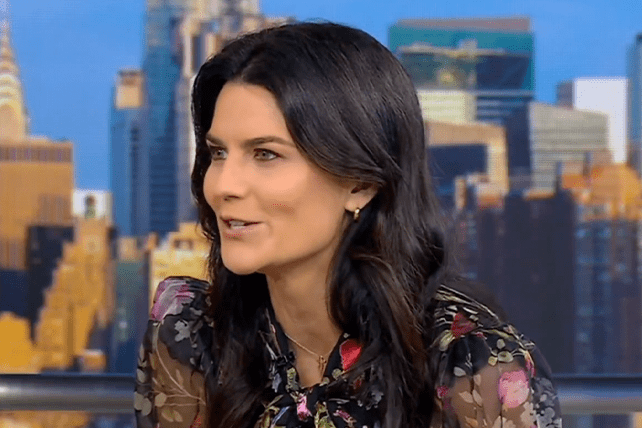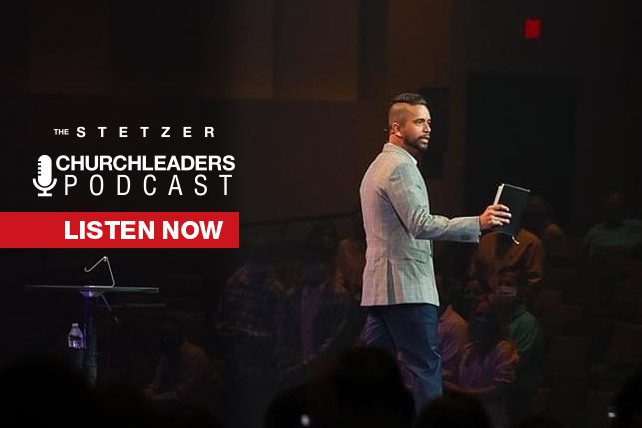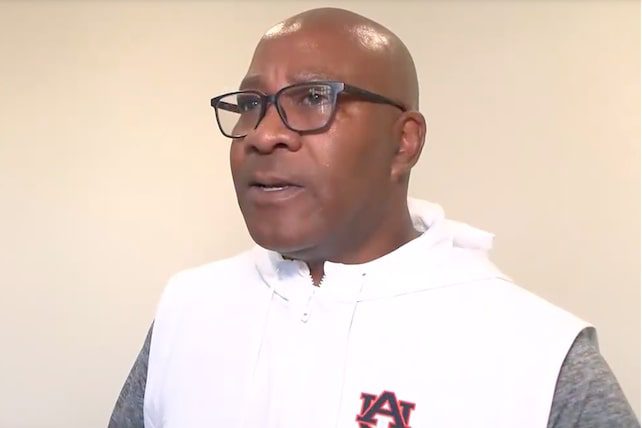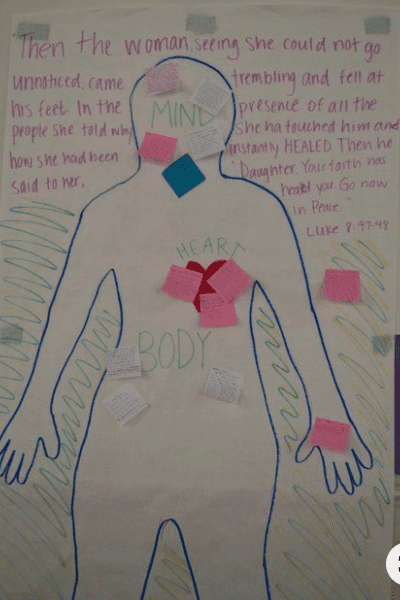EPISODE 498-FINAL-Libin Abraham.mp3: this mp3 audio file was automatically transcribed by Sonix with the best speech-to-text algorithms. This transcript may contain errors.
Ed Stetzer:
The Setzer Church’s podcast is part of the Church Leaders Podcast Network, which is dedicated to resourcing church leaders in order to help them face the complexities of ministry. Today, the Church Leaders Podcast Network supports pastors and ministry leaders by challenging assumptions, by providing insights and offering practical advice and solutions and steps that will help church leaders navigate the variety of cultures and contexts that we’re serving in. Learn more at Church leaders.com/podcast network.
Voice Over:
Welcome to the Stetzer Church Leaders podcast, conversations with today’s top ministry leaders to help you lead better every day. And now here are your hosts, Ed Stetzer and Daniel Yang.
Daniel Yang:
Welcome to the Setzer Church Leaders Podcast, where we’re helping Christian leaders navigate and lead through the cultural issues of our day. My name is Daniel Yang, national director of Churches of Welcome at World Relief. And today we’re talking with Doctor Lyman Abraham Libman’s, lead pastor and elder of Bent Tree Bible Fellowship in Carrollton, Texas, and his vision for Bent Tree is to see disciples of Jesus formed in God’s kingdom, advancing into lost and broken places. If you enjoy our interviews, make sure you like and follow us on Apple Podcasts. Now let’s go to Ed Stetzer, editor in chief of Outreach Magazine and the dean of the Talbot School of Theology.
Ed Stetzer:
Okay, listen, let’s start to kind of introduce you to the Stetzer Church Leaders podcast audience with a little bit of your your background. Tell us about you. Yeah.
Libin Abraham:
I was born and raised in South India. My parents were pastors and church planters in Kerala. And when I was eight and a half or nine, our family moved to America, moved to Chicago a little bit. My parents said it’s too cold. Even though it was the summer of having.
Ed Stetzer:
Lived there in Chicago. It is too cold. Yeah.
Libin Abraham:
Yeah. And then we moved to Oklahoma, Oklahoma City, and we’re there for about a year. And then like, all of a sudden, God moved us to Chattanooga, Tennessee.
Ed Stetzer:
Chattanooga.
Libin Abraham:
Yeah, that and there’s a story there, I think maybe helpful of just knowing my background. You know, we were in Oklahoma for about a year. All of our family, extended family, like the people that we moved to America for, lived in Oklahoma. But my dad really felt like this is not where God had called us to. And so I remember this weekend, while we were there, where my dad told I was like nine at the time, he was like, hey, we’re going to fast and pray for a whole weekend. Well, I don’t want to do that. I’m hungry.
Ed Stetzer:
I’m a nine year old kid.
Libin Abraham:
Yeah, yeah, yeah. And so we did like Friday, Saturday, Sunday. But it was a family fast and we all did it. And then Saturday night, my dad says, hey, someone’s going to call us tomorrow morning. Sunday morning before we go to church and whoever that is, whatever they want, our answer is going to be yes. Wow. I’m like, that’s the most ridiculous idea. It could be like AT&T wanting to upgrade our subscription for something. But sure enough, Sunday morning before we left to church that morning, someone called us from Chattanooga, Tennessee and said, hey, is this Pastor Abraham? And my dad was like, yes. And they said, hey, you don’t know us, but we’re looking for a pastor and we feel like you’re supposed to come. Wow, would you pray about it? And my dad said yes like they thought he was crazy. I thought he was crazy. But. So I grew up and in a week from that moment we had, they came and picked us up with U-Haul trucks and moved it to Tennessee. But I grew up seeing just the faith in my parents, in ministry, in life and the importance of prayer. And so I grew up in Chattanooga, Tennessee, and eventually made my way to Houston for Fuller Seminary there. And now we get to pastor here in Dallas. And I did ministry for a while in Houston on the southwest side of Houston. Yeah. Now we’re here at Bible. Yeah. You did your.
Ed Stetzer:
Phd in multi-ethnic church multi-ethnic. We’ll talk about that in a little bit, I think. Depends on how we get to, because I really am interested in some of your thoughts on kind of the job description of the pastor. So you came you came into Bantry in a, in a real time of transition. Yeah. Well of course Covid everyone but you came in around that time, the former pastor, well known former pastor, had sort of, you know, left the church and eventually left the ministry and, and, and a whole journey of his own. That’s complicated. But but so. But so you come here. Tell us a little bit about the beginning here. Some of the things you’re walking through as you come to Bent Tree Bible Fellowship.
Libin Abraham:
Yeah. So, uh, our lead pastor who served here for 28 years, so, like, a long time, almost three decades, he left pretty abruptly in 2019. And so the church had been doing a shared leadership model with a couple of executive pastors and teaching pastors. And but eventually the elders decided we need to hire a lead pastor. And so they were looking for a lead pastor. So it had been two years without a lead pastor, and we were loving our life in Houston. But the Lord really moved us here through a lot of prayer and all of that. But when we came, you know, like when you’re when you’re new to a church, you’re like, I’m ready to go. Like I’ve got vision, like, let’s chart the hill. Our our staff needed a break. Like they had gone through the pandemic and what we call the pandemic.
Ed Stetzer:
So you’re 2019, Pete left, Pete Briscoe left. You come. When 2021, 2021 okay. So you come right after Covid. But then you said the pandemic and the pandemic.
Libin Abraham:
Yeah. So like a lot of people have left the church when kind of your trusted senior leader and communicator had left. Pandemic happened and then all the racial tensions around the country. And it’s hard enough to lead a church when you have like a trusted leader that’s been there for like 2 or 3 decades through a pandemic and all that. So I think, I think the church was just in a season of unrest and lacking clarity and maybe like, where are we going? And so so it was kind of coming to that. And our staff led beautifully through that season. And but it was like, I’m coming in with vision. And some of our body were ready to go forward. But, you know, I think our staff had just been worn out. And so coming into a church like that, I had to like slow down and say, okay, how can I love my staff? Well, and shepherd my, my staff on our community, in our church community. And I was so thankful I did that because we have some of the best staff here. And so God really used that time to, to for me to know our staff and to know our body and know the history of all that’s been going on.
Libin Abraham:
It’s like, you know, until I could really understand the context of this local body, this bride of Jesus, I don’t know that I would have been able to move us forward into the next season of where the Lord was calling us into, so there was a lot of waiting and listening and learning. One of the things I did right when I came is I had asked all the elders and senior leadership team to give me names and numbers of people who either have left or have been involved and engaged and are still there, but somebody that I need to just talk to and reach out to. So when I came, I had like a list of 250 names of people who either had left or were disgruntled or just like, were here leading and serving through really difficult times. And I just had coffee and lunches and phone calls with different people in various spectrums of our church life and just said, hey, I want to just hear your story. And and so that’s something I felt like, I want to honor the people who have been here and also give me a chance to introduce myself. And and so, so I had to go slower than I wanted to in stepping into leadership.
Ed Stetzer:
All those things, you know, 2021 was a unique time. We’re still following up from summer 2020 Covid. But then I mean, how does how does. And Pete Briscoe I’m not with legendary well-known pastor. Um, how does he describe his current journey or where he is now?
Libin Abraham:
Yeah, I mean, I think he would well, he’s got a podcast called kind of evangelical, kind of evangelical evangelical. So I think that’s probably the term he would use to describe himself, I’m assuming. Right. Uh, well, there are some tenets of the evangelical faith that he’s holding on to and then some that he but shifted.
Ed Stetzer:
On some pretty significant issues. Um, and does he use the word that some deconstruct or some part of the deconstruction or what does he use. Yeah, I don’t, I don’t yeah, I know we have some mutual friends. Yeah.
Libin Abraham:
The analogy that he’s used is if the evangelical faith is the house. Uh, he is. And then the rest of the things are outside. He’s he does describe himself as someone who’s left the house. Okay.
Ed Stetzer:
So your pastor in the house? Yeah. So that’s where it’s a little tricky. So a former beloved pastor of, say, 28 years, right? So when I became the interim pastor of the Moody Church, Erwin Lutzer had been there for 38 years. And I know the level. I mean, once you’re 20 years, I mean, it’s hard to separate you from the church. Some of that’s good, some of that’s bad. Pete was widely loved. Now he’s left the house. You’re still pastoring the people who believe what he believed before. How did you walk through that?
Libin Abraham:
Yeah, well, I think I wanted to honor him, and I still do. And he’s. God used him in a powerful way to lead our church for 28 years. Incredibly gifted. And we wouldn’t be who we are. He’s a.
Ed Stetzer:
Remarkable communicator. Yeah.
Libin Abraham:
And so I never wanted to, like, pit us against him or anything like that. It’s like, hey, you know, he’s on a faith journey and he’s asking questions that he’s wrestled with for, I think even while he was here. I think that was a hard part like that. Maybe there were some things that he’s wrestled with that that’s just now coming to light. But I think for me it’s to, you know, for our bodies. Okay, let’s let’s really dive into the Scripture and what is it that we believe. And it was a chance to highlight, like the doctrines that we hold to and the why. Interestingly enough, when that podcast came out, we were actually in a series called can I Ask That? Which is really about like asking the tough questions, how do I trust the Bible? You know, is it true? Who is Jesus? Why do I need to be saved? And so we were already in a series, and when it came out, I was like, man, it was really kind of the Lord to allow us to already be in this current of asking these kind of questions that maybe others around us are asking. And so it just gave us a chance to bring clarity. And but so I think, you know, people have just stayed with us and I think they’re able to discern, okay, we want to study the scriptures and we’re we’re going to stay in this lane of evangelical faith and trust in Jesus in that way. And and yet we want to be aware of the questions that are around us. And I think maybe Pete was asking some good questions and he.
Ed Stetzer:
Was asking good questions. I think you need to be able to communicate some of those answers, particularly when people in your church are seeing their pastor of 28 years saying, here’s a question I have. Here’s a question I have. So and it is it was in God’s providence that you were going through that same time. But it does sort of speak to what I wanted to mainly talk to you about. Right. A lot of times on a podcast, everyone calls me when they have a book out. So I called you and the other way around. So, um, because, you know, every book out there doing this and I love talking to people in the new book because they’ve got they put their ideas down, they’re thinking them through. You don’t have a new book out, right? So you came to this church in the midst of all of those things, and I think you have something to say to pastors and church leaders about kind of what God’s job description is for the pastor, because what everyone’s thinking is going to come right now is Ephesians chapter four. God has given some apostles, some prophets, some evangelists, teachers. But you go a different.
Libin Abraham:
Direction, I do. I you know, Ephesians four is a great text. I go to Ezekiel 34.
Ed Stetzer:
Which is not where I had to. I had to look it up. So.
Libin Abraham:
Yeah, I came across this passage in my seminary training. I was like, you know, you know, because when I grew up in South Asia, I saw church down very differently. And now, you know, in the North Dallas area, church looks very differently. And there’s so many things that people can make the job to be, you know, it’s this or that. It’s about getting the next book out or it’s about the podcast, it’s about my followers and it’s about my global influence and reach. For me, I just needed something to center me. What does God want from my ministry? Like, not what the church expects of me. Not what the culture or the community around expect. What? At the end of the day, when I face my Heavenly Father. What did he expect from my ministry? We want to.
Ed Stetzer:
Hear. Well done, my good and faithful servant. As a pastor.
Libin Abraham:
Yeah, yeah, yeah.
Ed Stetzer:
All right. So then again, you go to Ezekiel. Tell us a little about that.
Libin Abraham:
Yeah. Ezekiel 34 God is actually giving an indictment to the shepherds of Israel, who were kings and other noble leaders in Israel. And it’s really a judgment against the shepherds. And it’s a fascinating text if you, you know, just. Ezekiel 34 verse, verse 1 to 1 onwards, even just, um, let me, let me pull it up here. Do you have it pulled up there?
Ed Stetzer:
I do. Do you need me to read the text for you? You need me to read the Bible for you? Okay.
Libin Abraham:
It says it.
Ed Stetzer:
Starts at verse four. You have strengthened. You have not strengthened the weak.
Libin Abraham:
Start from verse one and go.
Ed Stetzer:
Go down. I already pulled up verse four. So you can’t, you can’t, you can’t change the text in the middle of this here.
Libin Abraham:
So I gotta pull it up here. I got it right here. Okay. So Ezekiel 34, verse one onwards, the word of the Lord came to me, son of man, prophesy against the shepherds of Israel. Prophesy and say to them, this is what the Lord says to the shepherds, woe to the shepherds of Israel! Like, I don’t want to hear that.
Ed Stetzer:
That’s the phrase you don’t hear. I want to live in. Woe to the Shepherd of Bible Church.
Libin Abraham:
Woe to the shepherds of Israel who have been feeding themselves. Shouldn’t the shepherds feed the flock? So immediately. It’s okay. I’ve called you to feed. Take care of the flock. But you’ve been tending to yourself. Like gaining for yourself. Gaining wealth and power. All that for yourself. Verse three says you eat the fat. Wear the wool and butcher the fattened animals. But you do not tend the flock. Okay. And so verse four, you have not. And here are some of the job descriptions for me, you know. Beginning in verse four all the way to 16. But I want to just mention this. Verse four says, you have not strengthened the weak. Healed the sick. Bandaged the injured. Brought back the strays or sought the lost. Instead, you have ruled them with violence and cruelty. They were scattered for the lack of a shepherd. They became food for all the wild animals. And they were scattered. My flock went astray on all the mountains and every high hill. My flock was scattered over the whole face of the earth, and there was no one searching for them. And that’s a passage for me. It was like, okay, God is serious about what he wanted from the shepherds of Israel, and he wanted them to feed them, strengthen the weak, seek out for the lost and the stray, bandage the injured, protect them, lead them not with cruelty and violence, but with justice.
Libin Abraham:
He wanted them to heal the sick and protect the sheep. Okay, so I just began to make a list from this chapter. There’s eight things that God’s going to hold me accountable to, and I want to be found at the heart of it. Like I want to be a shepherd to our. I know Jesus is the chief shepherd, and he’s inviting me to be the under Shepherd. But I just had this conviction that local church ministry is this kind of shepherding, that at the end of the day, I want to be found faithful by the power of the spirit working in me, and I’ve got flaws, and I’ll make mistakes, but this is what I want it to be like centering and anchoring my life. These these words here. And so, you know, so I’ve got eight things. I’m like, okay, this is what the Lord wants, you know. So I just listed them out in my own mind. And God helped me do this week in and week out.
Ed Stetzer:
You know, I never read this passage in light of modern pastoral ministry, but once you read it in light of that, it’s like, of course it’s like, and you see this, but it also it can be a rebuke. I mean, a lot of this passage is a rebuke. Yeah. You know, verse 12, as a shepherd looks after his scattered flock when he is with them. I also think about some of your situation when you came here. I can see why that would resonate with you. But right now, in the midst of some of the challenges and churches and more that we’re experiencing them, I think that’s for us. I mean, there’s some powerful stuff in here that tending the flocks of the shepherds can no longer feed. I will remove them from tending. Flocks of shepherds can no longer feed themselves. I will rescue my flock from their mouths and will no longer be food for them. Because I do think I mean, brother, I don’t want to point this out. We’re at the right now conference. We’re in Dallas area. If I hear one more news story with the phrase Dallas area pastor at the top of it. I mean, you’ve just experienced a series of cascading moral failures that have just just rocked Dallas area churches. So this is the experience of a lot of people who have been left out, disappointed and let go. My Uber driver this morning tells me I left my church because my pastor and was one of the one of the big pastoral failures. So all right, so if we are if we shape our ministry more around this Ezekiel passage, what would it look like?
Libin Abraham:
Yeah, I think first of all, John Mark comer talks about all of us may have mixed motives at best, where maybe you began to serve the church, but at some point the church started serving you. Sure. You know, and so I think to be cognizant of that, am I serving the body or am I expecting the body to serve really my fleshly desires? And I think for a lot of the failures, at some point the motive shifted from, I’m here to serve to people are here to serve me. So when I think about this list, you know, feeding the flock that’s really around, you know, giving people God’s word, I don’t want people to be nourished by my personality. I want people to be nourished and sustained by the living word of God. And so in terms of preaching like God’s Word is not a resource, it is the source. And preaching has to be a two way listening. It’s listening to God and listening to people. And I think a mistake that many people make in preaching is, okay, I’m the preacher, so I write my sermons in the ivory towers, and I’m not really engaged in people. But preaching is for the purpose of pastoring, right? And so for me, you know, like, I want to smell like the sheep. Like I want to be around and know that when I came, when I first came to venture, I really felt more like I knew that I was the lead pastor and I had the title and authority and influence, but I still felt like for a few months, I’m just a guest speaker because I didn’t know the stories.
Ed Stetzer:
Sure.
Libin Abraham:
So I was more of a preacher, but then I, as I knew the stories of our people, I could grow into my pastoral calling here. And so feeding the the flock that the Word of God is being preached as is intended to be preached, not to gain, not to serve your motives or agendas. And we talked about people have certain agendas. They know this will drive up my engagement in church and attendance. But to be honestly preaching the Word of God. So feeding the flock. Strengthening the weak. This is talking about people who are feeble in their faith. You know, weak or absent in their faith. And so to say, how do how do we strengthen the weak? And so a lot of times we think our small groups are going to do that. But is it actually doing that? Are we strengthening the small groups to know who the weak are and how to strengthen them in their weakness and to provide environments that are transformational? So I know, like we have several thousand people who call Montreal home and I don’t know everybody, but I want to, you know, my principal, like, I think I learned this from Andy Stanley. Like, do for one what you wish you could do for all. So I want to just do one more thing for somebody that I wish I could do for everybody, right? Um, and so creating environments and a leadership development pipeline. So whether your church is large or small, like creating environments where people who are weak can actually be in intentional relationship, that is strengthening them, because knowledge alone isn’t going to do that.
Ed Stetzer:
And it’s not just so much that you have to care for everyone, but you’re making sure everyone is cared for, right? I mean, you have this overarching care, but you got to make sure there’s environments to do.
Libin Abraham:
That, and you got to model it for people too. I think like we my heart for shepherding, I think it’s seen and I just say this, that people say like I’m the last to leave. Like I’m not like preaching and I’m done and I’m slipping off the backstage. I’m usually the last to leave and our staff have caught on to that. It’s like, hey, we want to actually be available because I think in our day and time, accessibility is a superpower. Like sometimes, you know, like I heard this seminar like, hey, don’t let people get too close to you. Like, you don’t want to be available all the time. And I get that, like, you want to have balance in life.
Ed Stetzer:
I wish I would think that, though. You don’t want to be available all the time. So how do you do that? Accessibility, but also still survive as a husband and a father and you know. Yeah, I think it’s.
Libin Abraham:
Picking the moments where it’s like, hey, I can I can afford to be accessible and available here in the moment. You know, John Maxwell used to say, you know, you can have unconditional love for everybody, but you don’t have unconditional time. And so that’s so true, right?
Ed Stetzer:
I remember Adrian Rogers once I had a conversation with him and I was having a conversation with him. Felt like I was the only person that mattered. And and what you hear consistently. I went to his funeral and I cried like a baby. But that’s what the stories were over and over again. When you were with Adrian Rogers, you were the only person that mattered, even though he was pastor of this super large church. But that’s a skill to cultivate. That’s a that’s a heart condition to actually cultivate. Yeah.
Libin Abraham:
And I want to have the same at my home, my family, my kids call me up. We have this phrase where I’ve asked my kids to say, it’s be where your feet are. Yeah. And so it’s really that when I’m with somebody, I want to be fully present. Like, I’m not just on the way to the next thing. I’m not, like, looking over there. I want to be really dialed in because Jesus was the most interruptible, unhurried person. He had a lot to do. Yeah.
Ed Stetzer:
But you to do that, you got to have margin in your life to be able to do that. So when you’re scheduling, you know, 50 hours of work and then saying, oh, I’ll have time for people. You don’t you can’t. You got.
Libin Abraham:
To put. Yeah. So my, my weakness is I was I will say yes to too many things. And so I’ve asked my admin and my wife and my family to help me say yes to the right things. That’s good. And so to be able to discern and people have veto power and somebody should have veto power in your life when it comes to that. So strengthening the weak, healing the sick, whether it be emotional or relational or spiritual. Man, there’s a lot of brokenness in our body. Um, and to have.
Ed Stetzer:
A lot of hurt people.
Libin Abraham:
A lot of hurting people. Like, I’m meeting people every week, like, just so many. Like the depths of the brokenness people are going through. It’s mind boggling, you know? But to have a culture where we are praying and expectant for the sick to be healed. Like, even as physical healing. Like, you know, mentally was, you know, historically, like more of a cerebral intellectual, like the professors of DTS. This is where they all came. But God’s really shifted the culture. Yes, we’re still holding on to the preaching of and expositing the word. But there’s this culture of dependence on the Holy Spirit to do what we cannot do in our natural strength. So praying. So we have healing Sundays and all kinds of so healing the sick, bandaging the injured and injured. There is like complete shattering of a life. Like think of like a triage. And so, like, you don’t want to triage. Like you don’t want to treat a triage moment like you were like, okay, let’s create a wellness plan. This is what’s the immediate need right now. So being really I think it’s a ministry of presence right there with the people listening well, discerning what is it that they need right now, not what they need a year from now, but right now protecting the sheep. Um, and so, uh, you know, John Stott in his book on we’re doing a series right now on the seven churches. And John Stott, in his commentary in revelation, he talks about Satan’s strategy against the church has been the same three things from the beginning of beginning of time. It has been physical, which is first of all, physical, which is persecution. In the Book of Revelation is is depicted as the beast from the sea. So it’s a physical attack. A second it’s been intellectual, which would be false. Teaching in John Stott describes that as the beast from the earth. So physical and then intellectual, and the last one is moral, which is the lure of sin. And this would be described as a harlot in the book of revelation. Right?
Ed Stetzer:
I feel like I should know this from John’s. I love John’s stuff. I didn’t.
Libin Abraham:
Know this. Well, I see this, you know, like you mentioned, North Dallas, like the failings of people are either physical, like the enemy is bringing persecution or intellectual this false teaching or moral and so so to say this is what the enemy has always used as his strategy physical, intellectual and moral. And sometimes that leads into relational brokenness as well. And so I want to I want to offer teaching in pastoral ministry that protects our sheep, our people from that. So sometimes it’s identifying what are the false teachings in our life. Like what are the idols of our culture that people may give their heart over to and speaking to, you know, just things that are tempting in our way. Like there’s a book called The Respectable Sins. Like what are the respectable sins of our day that we’re tolerating and actually naming those things? I think that’s that’s needed. Um, and so, so bringing back the stray, you know, right there in the text.
Ed Stetzer:
Yeah.
Libin Abraham:
Talk about, you know, you and I were just we were talking about the book The Great Teaching by Jim Davis and Michael Graham, and they’re talking about how for the first time in human history, in America’s history, we have more people out of the church than in the church in American history, 40 million adults today who’ve walked away from their faith, 16% of our adult population. They’re de-churched. That that over the last 25 years, more people have left the church. This is mind boggling. More people have left the church than all the Christians who became Christ followers during the First Great Awakening, the Second Great Awakening, and the Billy Graham Crusades combined. That’s a lot of straight people, a lot of straight people.
Ed Stetzer:
But but that may be, I think, a defining cultural reality that churches have not yet fully faced is how many strayed. How many people have used the term strayed or walked away? Yeah. Yeah. I don’t think I don’t think they’re all deconverted, but they just kind of. Well, even the book talks about it kind of loosely or loosely connected. And now they’re disconnected.
Libin Abraham:
Yeah. And some of that was just like, hey, we have transitioned in seasons of life, and we just got out of the pattern and some of that was, man, our church became way more vocal about politics than it did about the gospel. Or a lot of people said, hey, I’m not seeing the consistency between what was taught and how it’s lived out. Yeah. Like, I’m not I’m not seeing people call out injustice or sexual abuse or whatever, but the but that book actually, for me was hopeful because they talked about how the way you get people back is actually just to be consistent with the gospel. Right. Like they talked about, hey, people want something that’s true. So in my mind I’m like, if the gospel is true to the mind, it’s beautiful to the heart and it’s good for the hand like it does good in the world. It is beautiful for the heart and it’s true to the mind. People will be drawn back so we don’t have to reinvent the wheel. We just got to get back to the gospel that it’s true, it’s beautiful and it produces good in the world. Uh, and that’s why I think don’t be afraid of the doubts and the people who have left, like, engage in those conversations and come back to the gospel, um, because because the reality is the generation of the church will probably lead to a generation of unchurched. Right? And so so we want to we want to be intentional about the spaces and the messaging around how do we bring back people who might have walked away. You know, Nick, Nicky Gumbel from Alpha. Uh, he was talking one time about the question that people used to ask is is the gospel true? But the question that they’re asking now is, is the gospel good? Right. I was like, man, let’s think about it. Like, it’s not just the apologetics of our faith people, but they want to see. Is it actually doing good? Oh, no.
Ed Stetzer:
I will tell you that right now we’re trying to hire an apologetics professor, or we have the I think we have the largest apologetics program in the world at Talbot. And and one of the questions we’re asking is what questions are people asking? And 30 years ago, it’s a different conversation today. So for sure, it’s impacting everything we do in and around apologetics. And I think that this the passage sort of points to what that looks like. I love that. Yeah.
Libin Abraham:
So, you know, people who are listening, they may have people in their congregation asking some of these questions. And sometimes you.
Ed Stetzer:
Might, you say they may, they do, they do, they do.
Libin Abraham:
Like sometimes you could be preaching an answer that people are no longer asking. Right. Right. Uh, so yeah, bringing it back to stray, seeking the lost for us as a church. When I came in, I felt like we were in survival mode for many years, and we needed to be right. But in the in the process, we had lost a sight of the lost. And we had become so internal, focused, like within and to just to survive that we forgot about the lostness of our community. So the first two and a half years of when we came, we really put the emphasis on we called it pursuing the community of man. There are people in our community who don’t know yet Jesus. And so how do you step into spiritual conversations with people who are not yet followers of Jesus? And, and, and we kind of communicated this, this messaging that every Christian, not just some, not just the seminarian church, we are called to Christ and sent to people. There’s this dual calling of a Christian call to Christ, which most Christians are comfortable with, that. But then we’re sent to people, and that’s equally a part of our discipleship. It’s not like what you graduate into later. It’s every single believer is called to Christ and sent to people, and that’s kind of the vision we cast it in. And because of that, like 3000 people have come to our church because of our body. Engaging in intentional conversations, like.
Ed Stetzer:
Conversations in the community led to those you can you can see the impact. Yeah.
Libin Abraham:
We’ve got like half of our body is new in the last three and a half years. And I think it’s because there was a desire to seek out people who might be lost to. Really. I think most people know the how to for evangelism. I’m not sure if they have the want to. Yeah.
Ed Stetzer:
Let me just say I don’t think most people know how to, but I appreciate your heart. Yeah, I think most people, they can find it.
Libin Abraham:
If they want to, but they don’t. Yeah, we need to equip them. Absolutely. We need to equip them. And and as culture changes, we’ve got to have, you know, language that, that, that people are thinking about, right. We and I think it’s a lot more listening and asking the right questions and engaging. But I think it all starts with, man, I want to see I really believe that the gospel is good news. Yeah. Like it’s not awkward. It’s not offensive. It is good. It is going to be offensive to some, but it’s going to be good news. And so bringing back the lost or seeking the lost and then you know, just, you know, the last one will be leading the flock. Just talking about leading with humility. Uh, I think, you know, I think maybe a couple generations ago, like, you wanted to have this, like I’m above everybody else. But I think being among the people and leading with humility, I think that’s what I think that will draw people. And I think leading your own family, leading your own soul, leading your own family, it’s all a part of that. Like what is leading the flock look like from a healthy place? You know, from from a genuine place of of motives that are right. And a someone told me once, you know, there’s there’s three kinds of ways your family is involved in ministry. You’ve got some who will give up family for mission. And so, like Billy Graham was an amazing evangelist. But some of his kids will say, I wish I knew him better as a dad. And he would say the same thing for sure. So, you know, my parents were kind of similar, like you would give up some family time for the mission, right? Others will make family the mission. So I see this in North Dallas like it’s all about the life of your kids and the activities, and you’re just travel.
Ed Stetzer:
Sports takes over.
Libin Abraham:
Everything. So your family is mission. But I think the right model is now we’re a family on mission to really to have that identity. Like, you know, we’re a family that’s seeking the mission of God. And it’s a it’s an experience that we seek out together. So I think those would be some helpful things. And um, and so I think being accessible to people living in proximity to see and I think, I think a lot of the issues today within our, within the church world. I think people have taken away the identity of what does it mean to be a local church pastor. And they have put more on their shoulders than what they really are able to handle. And the shift has been away from, like, I want to shepherd my body, our local church, and then it’s just taking on whatever status, whether it be celebrity status. I want a global reach. Some people have a gift to do that, but the heart of it, like if you’re not local in your local church and present and engaged in the shepherding ministry, I think, I think, I think there will be some harm to your own soul or to your church at some point.
Ed Stetzer:
Yeah, I don’t think. Was it the Eugene Peterson said we were not designed or wired for fame? Yeah. Okay. So but this passage again, which I never read in light of modern pastoral ministry, I’ve done that since then. And and it’s not a happy sunshine passage. It’s like, I mean, there are other places, you know, you can read in the New Testament, you know, first, Peter, you can read in, you know, in first Timothy, three kind of pastoral descriptions. This is actually you’re not doing this and this is what it should be like. And I do wonder in part, I didn’t ask you beforehand if you were drawn to this passage, because right now we’re looking across America. I think there’s a crisis of leadership failure in churches and pastoral failure. I don’t just mean the moral. I think. I think the pastorate is is right now not going the way God intended. This industry that we’ve created needs a prophetic rebuke. Is that what drew you to this passage these days?
Libin Abraham:
I think I think that is partly, but I think I, I found hope in this passage because when I was looking around at like, who are the the most impactful leaders, I began to think to myself, man, I can never be a leader like that. You know, so even out of my own, like vulnerability, like insecurity, I was like I was starting to disqualify myself. Like, I don’t know if I could ever lead like that or lead an organization or be a CEO of a kind of a church kind of thing. And then the Lord said, that’s not actually what I’m asking of you. You know, this is what I’m asking of you. So part of me, this passage, gave me hope. So, okay, I don’t have to try and be like so-and-so who is leading this megachurch and all that, and, uh, you know, having these, like, skills that I was like, I don’t know if I’m gifted in that, but I know I want to shepherd people. Like, I love that aspect. I want to teach God’s Word. And I want us to have a healthy leadership environment and culture and all that’s a part of it. And I think I saw that it’s only a matter of time when you walk away from the call to shepherd your church.
Libin Abraham:
Um, that at some point it it finds you out, right. And then because your soul isn’t, you’re not being fed from the source of who Jesus is, living from him, living by his spirit. Because ultimately, if you’re not about the father’s business and if this is like the passage is, this is what the father is wanting, right? And the indictment says, you’re not doing this. You know, God says, I’m going to do this. I’m going to be this kind of shepherd. And that’s who Jesus was. When you look at the ministry of Jesus, you see every one of these eight things lived out so beautifully in how Jesus led and shepherded with compassion and humility. And he taught with authority and all of those things. So you look at the case study of how Jesus was a shepherd. Um, and so I just want to be found faithful to this. And so I found comfort in this passage. If this is God’s heart, if I join him in his vision for my life, then he’s going to provide the resource and the strength that I need to do this.
Ed Stetzer:
Live in Abraham. Thanks for taking the time.
Libin Abraham:
Yeah, really appreciate this.
Daniel Yang:
And we’ve been talking to Doctor Libin Abraham. And you can learn more about him@bentry.org. And thanks again for listening to this Church Leaders podcast. You can find more interviews, as well as other great content from ministry leaders at Church leaders.com/podcasts. And again, if you found our conversation today helpful, I’d love for you to take a few moments to leave us a review, give us a like and a follow, and that will help other ministry leaders find us and benefit from our content. Thanks again for listening. We’ll see you in the next episode.
Voice Over:
You’ve been listening to the Stetzer Church Leaders podcast for more great interviews as well as articles, videos, and free resources, visit our website at Church leaders.com. Thanks for listening.
Sonix has many features that you’d love including automatic transcription software, advanced search, generate automated summaries powered by AI, automated translation, and easily transcribe your Zoom meetings. Try Sonix for free today.



